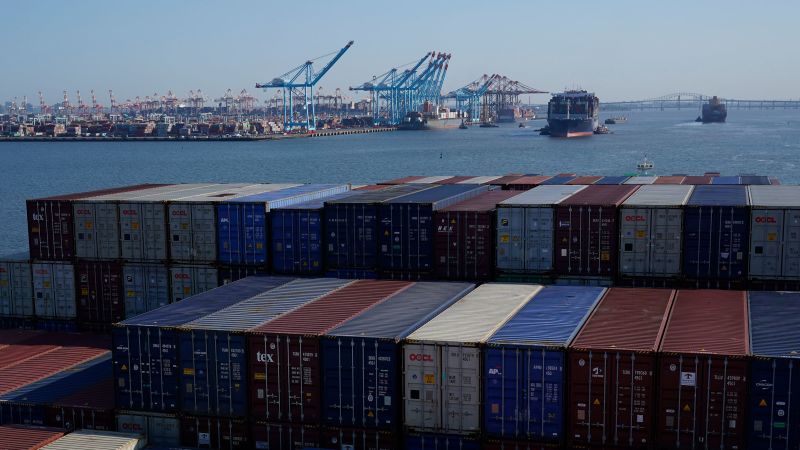Longshore workers at ports along the East Coast and Gulf Coast are planning to strike on Tuesday, potentially causing significant disruption to the US economy by halting the flow of goods. The United States Maritime Alliance (USMX) is negotiating with the International Longshoremen’s Association (ILA), which represents 85,000 members, over contract issues. If the strike goes ahead, it could impact ports at 14 authorities, leading to shortages of consumer and industrial goods, driving up prices and potentially causing temporary layoffs in US factories.
The strike would affect a wide variety of goods, including bananas, European wine, clothing, toys, household goods, and European autos. Ports like Port of New York and New Jersey, Port Wilmington, and Port of Baltimore handle a significant volume of imports such as bananas, cherries, hot peppers, chocolate, beer, wine, whiskey, scotch, rum, and auto imports. The potential strike could halt the movement of these goods and disrupt the supply chain, affecting businesses that depend on the movement of goods.
The USMX and ILA are at odds over wage increases, with the union demanding raises of $5 an hour per year, which would be a significant increase in pay for the workers. The USMX has offered wage increases of up to 40% over a six-year contract, but negotiations have stalled. The shipping industry has seen substantial profits in recent years, exceeding $400 billion from 2020-2023, leading the union to push for higher wages to reflect their contributions.
Businesses dependent on the movement of goods are closely monitoring the negotiations and are concerned about the potential impact of a strike on their operations. Retailers are making efforts to move their goods ahead of the strike deadline to minimize disruptions, but recovery from even a one-day shutdown can take several days. Business groups have called on the Biden administration to intervene and prevent the strike from happening, citing the critical role of the ports in moving imports and exports through the US.
The Biden administration has indicated that it is closely monitoring the negotiations but has stated that it will not invoke the Taft-Hartley Act to end the strike. The Act allows the president to intervene in labor disputes that affect the national interest. While some economists believe that Biden may ultimately decide to take action to prevent economic disruption, there are political risks associated with intervening in favor of foreign-owned shipping lines or against American union members.
The potential strike at East and Gulf Coast ports poses uncertainty for the US economy, with the Biden administration balancing the need to maintain labor peace and prevent disruptions while also considering the political implications of intervening in the negotiations. The outcome of the negotiations and the potential strike could have significant implications for the supply chain, prices of goods, and the overall economic recovery from the pandemic-induced inflation spike.













